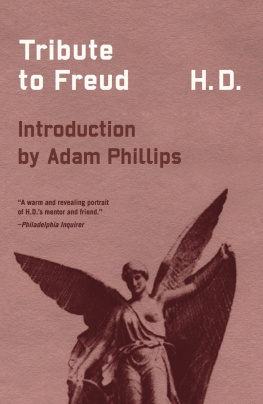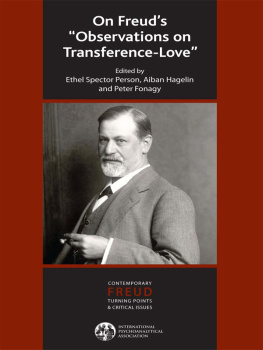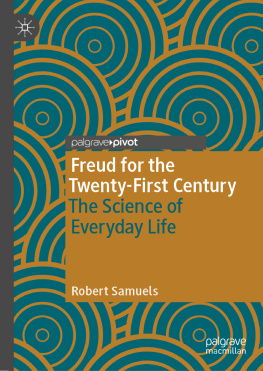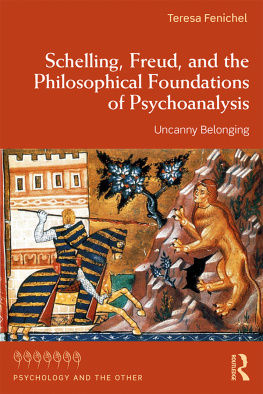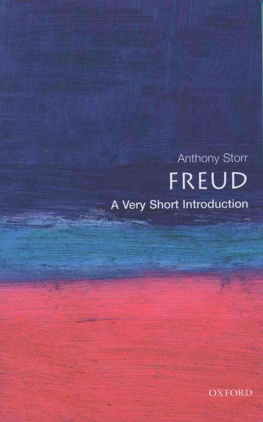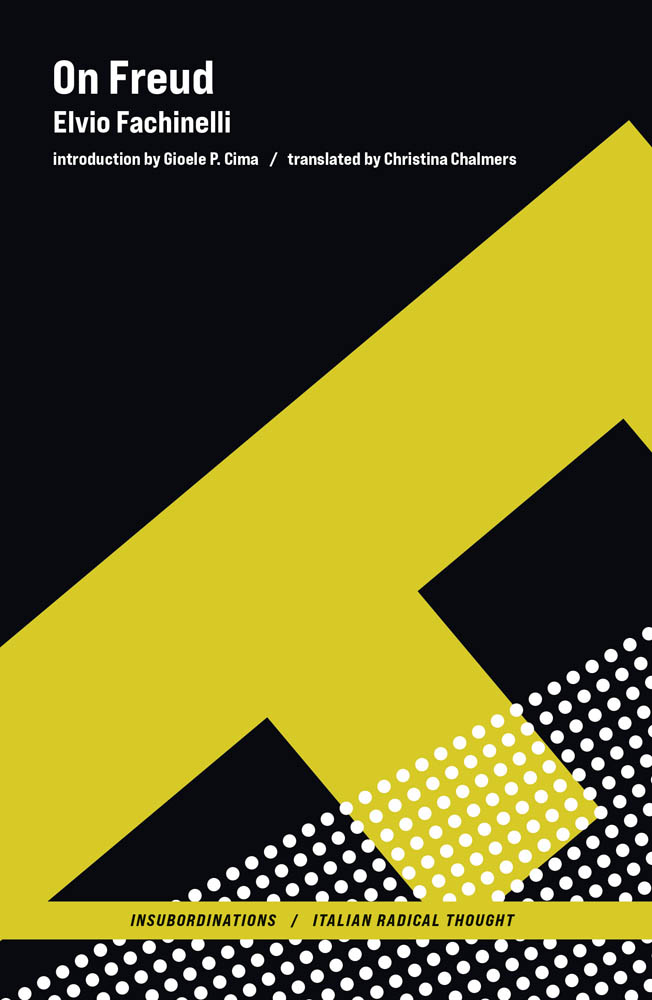
On Freud
Insubordinations / Italian Radical Thought
Lorenzo Chiesa, series editor
The Monopoly of Man, Anna Kuliscioff
Convention and Materialism: Uniqueness without Aura, Paolo Virno
On Freud, Elvio Fachinelli
On Freud
Elvio Fachinelli
translated by Christina Chalmers
with an introduction by Gioele P. Cima
The MIT Press / Cambridge, Massachusetts / London, England
2022 Massachusetts Institute of Technology
All rights reserved. No part of this book may be reproduced in any form by any electronic or mechanical means (including photocopying, recording, or information storage and retrieval) without permission in writing from the publisher.
Originally published as Su Freud, 2012 Adelphi Edizioni.
The translation of this work has been funded by SEPS
Segretariato Europeo per le Pubblicazioni Scientifiche

Via Val dAposa 7, 40123 Bologna, Italy
seps@seps.it www.seps.it
Library of Congress Cataloging-in-Publication Data
Names: Fachinelli, Elvio, author.
Title: On Freud / Elvio Fachinelli ; translated by Christina Chalmers ; introduction by Gioele P. Cima.
Other titles: Su Freud. English
Description: Cambridge, Massachusetts : The MIT Press, [2022] | Series: Insubordinations: Italian radical thought | Includes bibliographical references.
Identifiers: LCCN 2021046828 | ISBN 9780262047203 (hardcover)
Subjects: LCSH: Freud, Sigmund, 1856-1939. | Psychoanalysis.
Classification: LCC BF109.F74 F3313 2022 | DDC 150.19/5dc23
LC record available at https://lccn.loc.gov/2021046828
10 9 8 7 6 5 4 3 2 1
d_r0
Contents
Insubordinations are creative and innovative double negations. They occur when an existing negative condition, the state of being sub or under a given order and thereby having an inferior rank, is countered by negating this very subjection. In our current late-capitalist predicament, such a reversal acquires a more complex meaning. The ordering authority is in fact no longer simply in crisis and exposed to resistance but profoundly disordered in its own operative structure. Today, powers traditionally devoted to regulation perpetuate and reinforce their effectiveness by continuously deregulating themselves. Orders become more and more oppressive precisely as they unveil the inconsistency on which they rest. As Pier Paolo Pasolini presciently put it almost fifty years ago, by now, nothing is more anarchic than power. In this desolate scenario, actual insubordination cannot but arise as the tentative search for a new kind of order. Its long-term and admittedly ambitious mission is the establishment of a society without subordinates, called communism. Its first and more realistic task is a taxonomic critique of an Order that resolves itself into myriad conflicting, yet no less tyrannical, suborders.
The present series aims to dissect the contemporary variant of the double negation involved in insubordination through the privileged prism of Italian radical thought. Starting in the late 1970s, Italy emerged as a laboratory for test-piloting the administration of the state of exception we are now living on a planetary level, both geopolitically and in our everyday lives. A brutal repression put an abrupt end to an intense season of social and political emancipations. But the theoretical elaboration of that defeat, which should not be confused with a grieving process, has managed to promote Italian radical thought to the center of a series of international debates that endeavor to define a new function and field of revolutionary politics. The series moves from the assumption that while so-called Italian Theory remains a vague and awkward category and attempts at hegemonizing it run the risk of resurrecting the idea of a national philosophy, it is beyond doubt that a growing number of left-wing Italian authors have, for good reasons, become very popular worldwide.
Drawing on philosophy, political theory, psychoanalysis, architecture, art history, anthropology, sociology, economics, and other fields, this interdisciplinary series intends to both further investigate consolidated Italian theories of emancipation and introduce authors (both present and past) who still remain largely unknown among Anglophone readers. Insubordinations: Italian Radical Thought will also foster original critical readings that pinpoint the tensions inherent to the oeuvre of prominent progressive thinkers and develop novel dialogues with various strands of post-World War II militant thought (such as heterodox Marxism, biopolitical theory, feminism of difference, social psychoanalysis, anti-psychiatry, and theories of Fascism). The series will also translate works by seminal earlier Italian authors who may be regarded as forerunners or critics avant la lettre of current trends in Italian radical thought.
It is my hope that, by delving into the titles of this series, readers will be able to appreciate the disciplined indiscipline they all share.
Lorenzo Chiesa
1 The Life of a Dissident Psychoanalyst
Elvio Fachinelli was one of the most original and, in many respects, most controversial Italian psychoanalysts of the twentieth century. A perceptive critic, acute connoisseur, and translator of some of Freuds important works,
Born in the small Alpine village of Luserna in 1928, Fachinelli spent his childhood in both Italy and France before studying medicine at the University of Pavia. He graduated with full marks and, after some hesitation, specialized in psychiatry, completed an internship at the Ospedale Maggiore in Milan, and wrote a thesis on the use of the Rorschach test in the diagnosis of obsessional neuroses. In 1962 he began his training analysis with the eminent Italian psychoanalyst Cesare Musatti, Fachinelli died in Milan on December 21, 1989, and was buried in Luserna, to which he donated his rich and extensive library.
More than thirty years after his death, Fachinellis legacy appears shrouded in an aura of perplexity. It is no exaggeration to say that, today, his thought seems sadly relegated to the margins of the history of psychoanalysis, reappearing only sporadically in the distorted form of the memorial or intellectual tribute. With some noteworthy exceptions,
2 From Psychopathology to Revolutionary Psychoanalysis
Fachinellis early writings appear to be distant from psychoanalytic theory and mainly dwell on psychiatry and psychopathology. However, they already present some discernible traits of his later thought. Each of these works aims to expand the scope of clinical knowledge and open it to a dialogue with a diverse range of theories and domains. Fachinellis main concern as a psychiatrist specifically addresses the rejection of that parochial monism which haunts psychopathology as much as post-Freudian psychoanalysis. In this sense, what his earliest contributions set out to do was already typically Fachinellian: no statistical or scientific model can exhaust the sheer exuberance of subjectivity; clinical practice should not be expected to passively convert the patients inner condition into the jargon of mental health, but instead translate the clinicians knowledge into concrete lived experience, into a kind of praxis which characterizes each subjects psychological vicissitudes as unique. For Fachinelli, both the psychiatrist and the psychoanalyst must share the same ethical motto: instead of closing themselves up in the fortresses of knowledge, clinicians must actively
Next page




